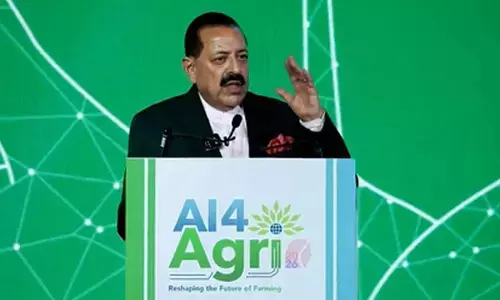Budget 2022: What is in it for startups?

Budget 2022: What is in it for startups?
The Budget this year shows some degrees of promise, but could have offered several new vistas of opportunities to the startup ecosystem
The Union Budget for India for the financial year 2022-23 has been unveiled while the country remains in extraordinary situations. The economy is still recovering from the setbacks caused due to the pandemic and the lockdowns and is finding its way out of the most recent troubles from the coronavirus crisis. In such times, the anticipation of a visionary budget to boost progress and resilience has been obvious. As Finance Minister Nirmala Sitharaman outlined the specificities of the budget today with insistence on the need to boost infrastructure, let us look at how well the declarations bode for the economy and the startup ecosystem.
The focus areas of the budget were announced as inclusive development, productivity enhancement, sunrise opportunities, energy transition, climate action, financing of investments and a bolstering and integration of infrastructure through the PM Gati Shakti master plan which intends to bring sixteen ministries including Railways and Roadways together for coordinated planning and implementation of infrastructural development. Taxation did not see many alterations, with a tax of 30 percent on digital assets and cryptocurrency, alongside tax and surcharge reductions for cooperative societies.
The expectations from the startup world were many, ranging from GST exemptions, easy access to working capital, policy support for better capital participation, incentives in form of subsidies and interest-free loans for small businesses in small towns and reducing disparity in capital gains taxes for listed and unlisted firms. The Budget has delivered on some of these fronts certainly. While noting that "Startups have emerged as a growth driver for the economy", the Finance Minister announced an additional year of tax relief for startups. Furthermore, the minister proposed to extend the capital gains tax exemption for investments in start-ups by one year, while declaring that startups serving agricultural and rural sectors will be served with a fund mobilized via NABARD.
Simultaneously, the minister stridently made the case for expansion of digital payments and fintech. "Taking forward this agenda, and to mark 75 years of our independence, it is proposed to set up 75 Digital Banking Units (DBUs) in 75 districts of the country by scheduled commercial banks," she proclaimed, alongside noting that the financial support for digital payment ecosystem announced in the previous Budget would continue in 2022-23. "This will encourage further adoption of digital payments. There will also be a focus to promote use of payment platforms that are economical and user friendly," the Minister remarked.
While these announcements seem optimistic, it has to be discerned that the implementation of infrastructural projects will be key. As Pranay Bhatia, partner and leader of Tax and Regulatory Services, BDO India opines in a statement to The Economic Times, "Thrust on financial inclusion initiatives will help banking and NBFC's only when the infrastructure for the same is made robust. Digital banking and fintech focus, if coupled with measures for ease of doing business should help give the much-needed thrust to already growing start-ups in the Fintech sector." There could also have been more direct measures to increase innovation endeavours and greater focus on startups in smaller locations.
All said and done, the Budget this year shows some degrees of promise but could have offered several new vistas of opportunities to the startup ecosystem. The rhetoric of strengthening startups, them being the drivers of a prosperous future, has not amounted to much financially in the budget and that remains a core area to be remedied.
(The author is Chief Impact Officer at Recykal Foundation)








